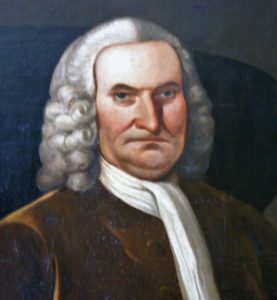Division of the Framers over Slavery
The US Constitution originally excluded the word “slavery.” Several clauses of the original document concerned slavery, but the Framers went out of their way –sometimes quite awkwardly—to avoid mentioning the word. Article 1, Section 2 included the phrase, “three-fifths of all other persons.” Article 1, Section 9 addressed the “Migration or Importation of such Persons as any of the States now existing shall think proper to admit.” Article 4, Section 2 offered some rules about returning runaways that began, “No Person held to Service or Labour in one State.” However, the 1787 debates in Philadelphia included slavery explicitly many times. The assigned excerpts include some notes from a speech by John Dickinson on slavery from July 9 and other passages from James Madison’s notes on the general discussion from August 22. That day alone, various Framers mentioned “slaves” or “slavery” at least 42 times, according to Madison.
Dickinson’s speech from July 9th included the word “slave” three times as he emphasized the charges of hypocrisy that would be leveled at the Americans from around the word by their unwillingness to confront the evils of slavery in their new constitution. Dickinson had been a large slaveholder in Delaware, but he had also started the manumission or freedom for his slaves a decade prior in 1777. As a student enrolled at Dickinson College, I am proud of his evolving anti-slavery position, but also discouraged because of his previous ownership of up to sixty enslaved people. I wonder if Dickinson felt ashamed of his own slave ownership when he asserted that the country should feel ashamed of the institution.
Madison’s notes on August 22 covered a debate over possible restrictions on the African slave trade. Five different delegates used the word “slavery” that day. Roger Sherman from Connecticut was clear in his denunciation of the kidnapping of African lives but also stated that it would be “expedient” not to ruin the convention over arguments about it. He claimed “the abolition of Slavery seemed to be going on in the U. S. & that the good sense of the several States would probably by degrees complete it.”
Sherman didn’t say so directly, but he seemed worried that too much anti-slavery in 1787 would drive away the Southern delegates. Charles Pinckney from South Carolina made statements that conveyed some of Sherman’s points. He defended the existence of slavery, claiming, “In all ages one half of mankind have been slaves,” but also stated that if South Carolina was “let alone” to decide on the fate of the African slave trade, he would vote to prohibit it. Pinckney’s second cousin and fellow South Carolina delegate, General Charles Cotesworth Pinckney, went much further. He not only defended the rights of southern states, but also justified the slave trade partly because of its economic benefit for the entire nation. The general was eleven years older. Not only did I find the defense of slavery bleak, but also the Constitution’s purposeful ambiguity that devalues the ownership of human beings in contrast to the convention’s frequent mentioning of slavery.
By Nick Rickert, June 2021

